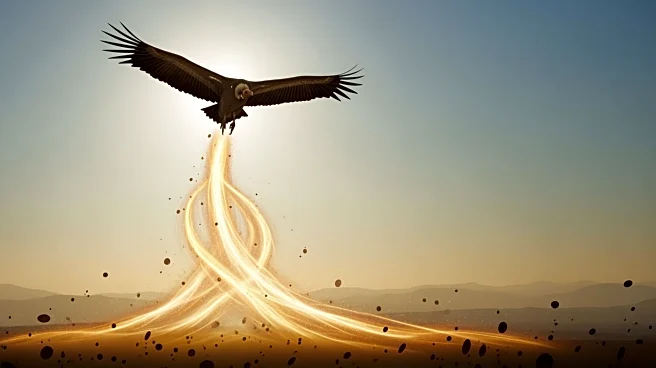What's Happening?
Vultures are often misunderstood as ominous creatures waiting for death, but experts clarify that their circling behavior is primarily due to riding thermals—columns of rising air created by the sun heating
the Earth's surface unevenly. These thermals allow vultures to soar and conserve energy while searching for carrion. Chris McClure from The Peregrine Fund explains that vultures use these thermals as invisible elevators to gain altitude and travel efficiently. Contrary to popular belief, vultures do not spread disease; instead, they play a crucial role in ecosystems by consuming dead and decaying animal carcasses, preventing the spread of pathogens. Their stomachs contain strong acid and lethal bacteria that kill off harmful pathogens like anthrax and rabies. The decline of vulture populations in India due to the use of diclofenac, a painkiller for cattle, led to increased spread of diseases from infected carcasses, highlighting their importance in maintaining ecological balance.
Why It's Important?
Vultures are vital for maintaining healthy ecosystems by preventing the spread of diseases through their consumption of carrion. Their ability to digest and neutralize harmful pathogens helps control outbreaks of diseases such as rabies and cholera. The decline in vulture populations, as seen in India, can lead to significant public health issues, including increased human deaths due to disease spread from untreated carcasses. Understanding the ecological role of vultures can inform conservation efforts and policies to protect these essential birds. Their presence reduces the need for human intervention in waste management and disease control, showcasing their importance as nature's cleanup crew.









